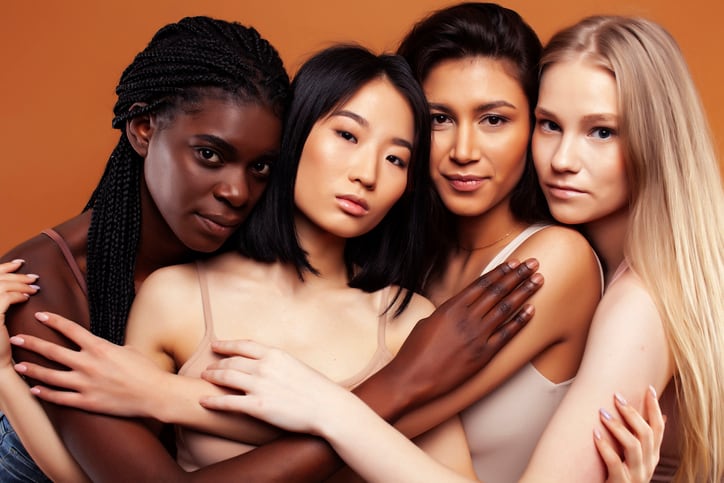The announcement made today was part of Unilever’s consumer-facing Positive Beauty vision and strategy that would see it “champion a new era of beauty which is equitable and inclusive, as well as sustainable for the planet”.
Diverse and inclusive beauty the ‘vision’ of the future
As well as removing the word ‘normal’ from its branding and advertising to describe hair or skin type, Unilever had also pledged to not digitally alter body shape, size, proportions or skin colour in any of its advertising and increase the number of ads portraying “people from diverse groups who are under-represented”.
“The decision to remove ‘normal’ is one of many steps that we are taking to challenge narrow beauty ideals, as we work towards helping to end discrimination and advocating for a more inclusive vision of beauty,” Unilever said.
Efforts to ensure this would also stretch into science-driven innovation to develop products that were tailored to serve the diverse needs of people around the world, it said.
Earlier this year, the personal care major detailed its goal of driving diversity and inclusivity within its own enterprise and network, setting aside money to exclusively conduct business with suppliers owned or managed by under-represented groups and committing to upskilling and raising living standards amongst its global workforce and supplier networks.
Consumers believe ‘normal’ wording can have a negative impact in beauty
Unilever’s move to revamp its product messaging came as findings from a 10,000-strong consumer survey, commissioned by the company in January-February 2021 across nine countries*, showed seven in ten people agreed the use of the word ‘normal’ on product packaging and advertising had a negative impact and 56% believed the beauty and personal care industry could make people feel excluded. Most people surveyed (69%) in fact said they would recommend a beauty brand to friends and family if it catered to a wide range of skin and hair types. [*The survey was conducted across Brazil, China, India, Indonesia, Nigeria, Saudi Arabia, South Africa, the UK and the USA]
Sunny Jain, president of beauty and personal care at Unilever, said given the company’s products were used by one billion consumer worldwide every day, it truly had the power to “make a real difference”.
“As part of this, we are committed to tackling harmful norms and stereotypes and shaping a broader, far more inclusive definition of beauty,” Jain said.
“We know that removing ‘normal’ from our products and packaging will not fix the problem alone, but it is an important step forward. It’s just one of a number of actions we are taking as part of our Positive Beauty vision, which aims not only to do less harm but more good for both people and the planet,” he said.
This was increasingly important in today’s beauty market context where findings from the Unilever-commissioned study indicated 74% of consumers wanted industry to focus more on making people feel better rather than just look better. Survey findings also showed 52% of consumers now paid more attention to a company’s stance on societal issues as well, ahead of buying a product.
“With more consumers than ever rewarding brands which take action on the social and environmental issues they care about, we believe that Positive Beauty will make us a stronger and more successful business,” Jain said.
Challenging ‘restrictive norms’ to celebrate diversity in beauty
Sarah Degnan Kambou, president of the International Center for Research on Women, said: “Every day we see and hear messages about how to ‘fit in’, how to be included in very narrow definitions of what is ‘normal’. In order to champion equity, we need to challenge these restrictive ‘norms’ and create societies and communities that celebrate diversity – and the unique qualities and ideas that each person brings. Beauty is no exception.”
“We look forward to seeing Unilever advance these commitments and hold themselves to the high standards they have set out before them,” Degnan Kambou said.




